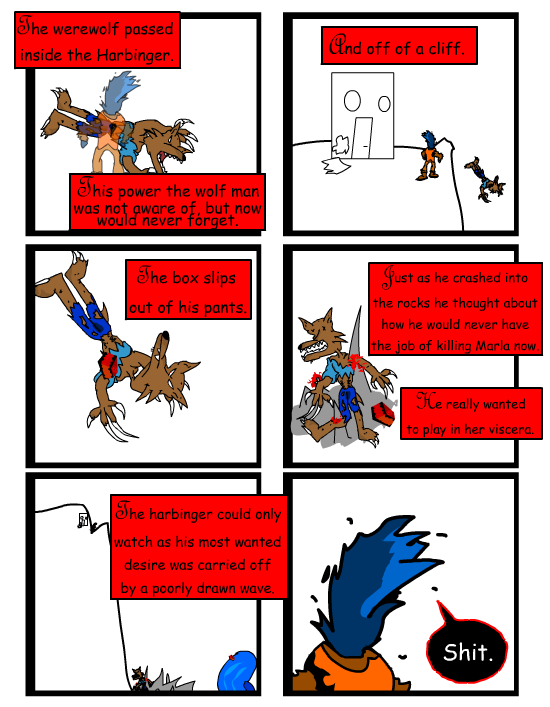werewolf

Author notes
20
marine onA happy ending is an ending of the plot of a work of fiction in which most everything turns out for the best for the hero or heroine, their sidekicks, and just about everyone but the villains.
In story lines where the protagonists are in physical danger, a happy ending would mainly consist in their surviving and successfully concluding their quest or mission; where there is no physical danger, a happy ending is often defined as lovers consummating their love despite various factors which may have thwarted it; and a considerable number of story lines combine both factors.
A happy ending is epitomized in the standard fairy tale ending phrase, "happily ever after" or "and they lived happily ever after." (The Arabian Nights have the more restrained formula they lived happily until there came to them the One who Destroys all Happiness (i.e. Death). Satisfactory happy endings are happy for the reader as well, in that the characters he or she sympathizes with are rewarded.
The presence of a happy ending is one of the key points that distinguishes melodrama from tragedy. In certain periods, the endings of traditional tragedies such as Macbeth or Oedipus Rex, in which most of the major characters end up dead, disfigured, or discountenanced, have been actively disliked. In the eighteenth century, the Irish author Nahum Tate sought to improve Shakespeare's King Lear by rewriting the ending so that Lear survives, Cordelia and Edgar marry, and the three sisters are reconciled. Most subsequent critics have not found Tate's amendments an improvement. Happy endings have also been fastened to Romeo and Juliet and Othello.
Note: This is not the end of werewolf this is the end of the first story in werewolf.
All information taken from wikipedia. Knowing is half the battle!


Comments
Please login to comment.
Login or Register${ comment.author }} at
${ comment.author }} at